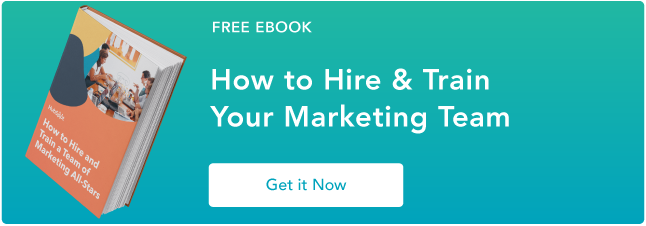Imagine this -- a hiring manager is choosing between two candidates of similar expertise, so she invites them both into the office for an in-person interview. However, she's given power to choose which questions she asks each one.
She notices the first candidate went to school at her alma mater, so she decides to gear her initial questions towards that commonality to build rapport. On the other hand, she will begin the other interview with a basic, "Tell me about yourself" question.
Seem fair? Probably not.
If an interview is unstructured, it doesn't mean the hiring manager didn't prepare questions ahead of time. However, an unstructured interview allows employees to ask different questions to each candidate -- which could become an opportunity for employees to judge candidates based on who they get along well with, as opposed to whether the candidate is qualified for the role.
Structured interviews help you minimize biases or personality preferences that could otherwise affect a hiring manager's decision to move forward with a candidate.
A structured interview is a process established by HR in which all candidates are asked the same predetermined questions in the same order. Your team will then rate each candidate using a standardized scoring system.
Structured interviews have demonstrated a high degree of reliability, validity, and legal defensibility compared to unstructured interviews. Additionally, a structured interview makes it easier to provide interview feedback to a candidate.
To implement a structured or semi-structured interview at your company, keep reading.
Structured Interview Questions
To create structured interview questions, you must first craft a detailed job description with all the necessary components of the role, as well as any "nice-to-haves". Once you have a job description, use it as a guide to write a list of hard and soft skills you're looking for in a candidate.
Next, you'll want to create a list of role-specific questions. For instance, you might consider asking:
- Give me an example of a time you had to [important job skill].
- What do you think will be your biggest challenge with this role?
- What most excites you about this role?
- Tell me how you would handle [specific job challenge].
These questions will vary depending upon the role. You'll also want to gauge the candidate's interest in your company in general, as well as her work ethic.
Here are a few general structured interview questions:
- Can you tell me a little about yourself?
- What do you know about the company?
- What are your greatest professional strengths? Alternatively, what are your weaknesses?
- What is your greatest professional achievement?
- Where do you see yourself in five years?
Lastly, there are structured interview questions you might want to ask to get a better sense for someone's leadership skills, willingness to learn, or ability to handle herself under pressure.
Take a look at the following structured interview questions, divided by category, for further inspiration.
To rate leadership ability
- You indicated on your resume that leadership is one of your strengths. Describe an experience in which you used your leadership abilities.
- Tell me about a time when you delegated a project to others effectively.
- 3. Tell me about a time you took the lead in a team project. What was the project outcome?
- 4. Can you recall a time where you had to give negative feedback to a colleague. How did you express this feedback?
To rate dependability
- If your manager asked you to complete a task you thought impossible at first, what would you do?
- Tell me about a time when you had multiple important projects to finish and how you prioritize them.
To rate willingness to learn
- Tell me about a time you failed at a project. How did you try to avoid failure? What did that experience teach you?
- Tell me about a time you had to learn something you weren't familiar with very quickly.
- Which other companies in [your industry] do you admire? Why?
Semi-structured Interview
A structured interview has plenty of benefits -- but, of course, it also has its drawbacks.
A structured interview leaves little room for building rapport. When a candidate answers a question, you're simply instructed to move to the next question, even if the following question has little relevance to the candidate's unique response.
If you feel a structured interview is too rigid for your workplace, but still want to use general guidelines to ensure fairness in your recruitment process, you might consider a semi-structured interview as an alternative.
A semi-structured interview still requires your HR team to create a list of open-ended questions, and subsequently train interviewers to ensure they ask role-specific questions and use a standardized rating system to determine a candidate's fit.
However, a semi-structured interview also provides more opportunity for the interviewer to tailor the conversation naturally, either by excluding questions they feel are redundant, or asking follow-up questions when they feel it's necessary.
Ultimately, a semi-structured interview requires your team to follow a predetermined set of questions, but allows the interview itself to feel more conversational by nature. The interviewer has the power to change the wording of the question, or the order of the questions, which could enable the interviewer to dive deeper or ask follow-up questions depending on the candidate's responses.


No comments:
Post a Comment